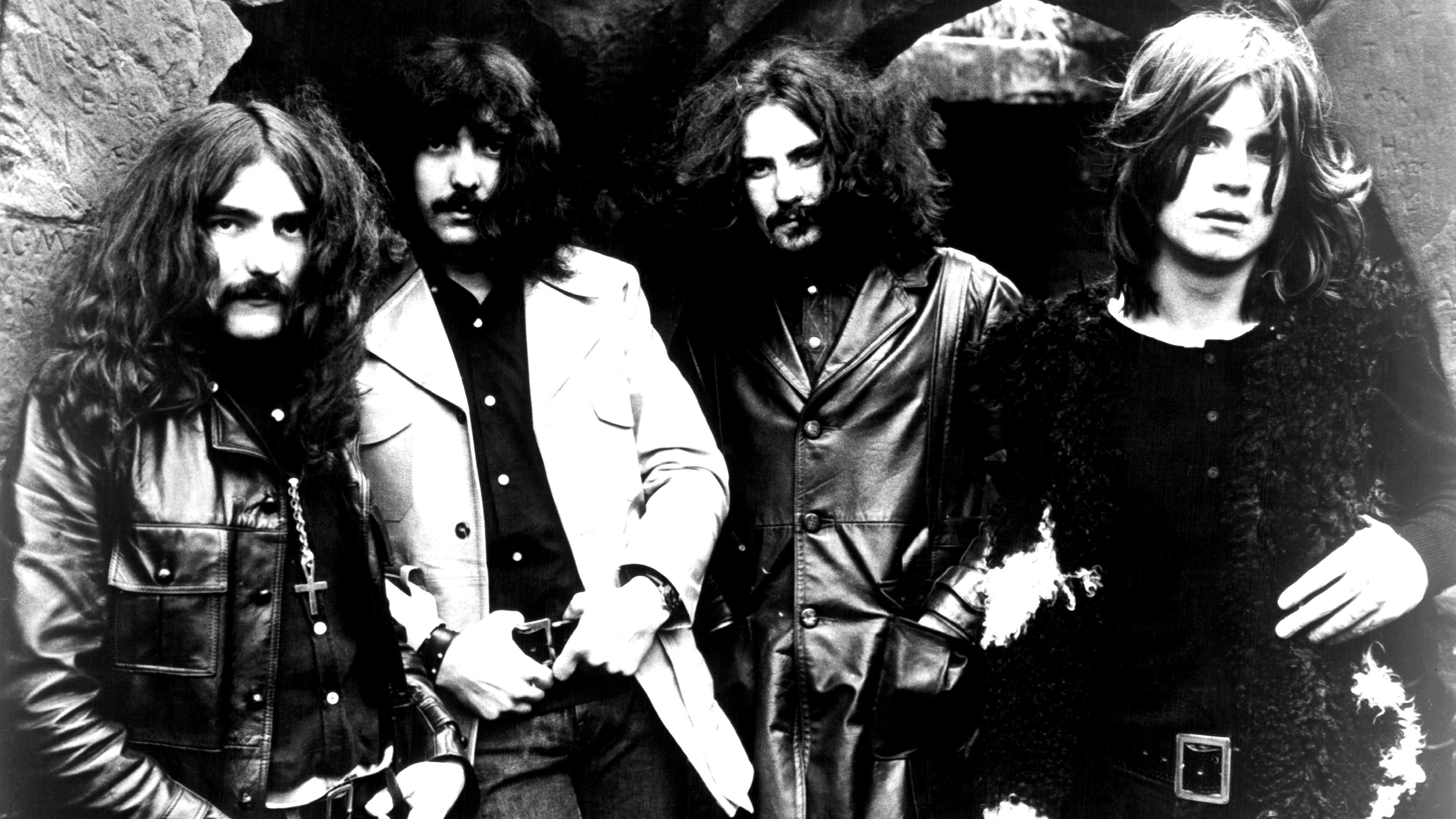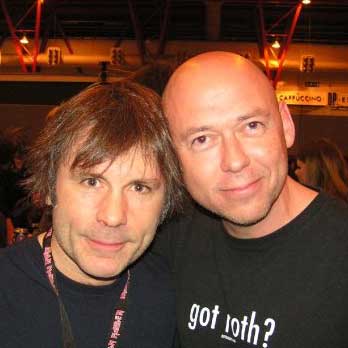“When you’re watching a horror film and you get that tingling sensation when something frightens you – I wanted to create that in music”: How Black Sabbath became the scariest band on Earth
Sabbath’s debut album is 55 years old today

On this day (13 February) in 1970, Black Sabbath’s debut album was released. It was recorded in a matter of hours, but its impact would echo through the decades.
Titled simply Black Sabbath, the album is one of the seminal rock records, a touchstone for countless heavy metal bands. And it happened more by accident than design.
In 1968, when the four members of Black Sabbath’s original line-up first got together as The Polka Tulk Blues Band, their music was as advertised, inspired by the stars of the British blues-rock boom such as Fleetwood Mac. All four were born and raised in Birmingham –“within a mile of each other,” as singer John ‘Ozzy’ Osbourne said.
Ozzy and guitarist Tony Iommi had known each other at school. Iommi and drummer Bill Ward had played in a band named Mythology, and bassist Terry ‘Geezer’ Butler previously played rhythm guitar for Ozzy’s band Rare Breed.
It was in early 1969, after a change of name from The Polka Tulk Blues Band to Earth, that Iommi heard the first Led Zeppelin album and vowed to make music that was, in his words, “even heavier”.
What Iommi discovered, by chance, was a sound of subliminal power. In a simple three-note riff, he unwittingly recreated a dissonant harmonic scale known for centuries as diabolus in musica – the Devil in music. Iommi’s riff was the foundation for a song in which heavy rock power was matched by visions of Satan and hellfire in Ozzy’s lyrics. In a stroke of genius, they named this song, and then rechristened the band, after a 1963 horror movie starring Boris Karloff: Black Sabbath.
The band's debut album was recorded in October 1969 at Regent Sound studio in London. According to Ozzy, it was completed in one session, “12 hours straight”. Iommi remembered it differently: three afternoons on consecutive days.
Get the MusicRadar Newsletter
Want all the hottest music and gear news, reviews, deals, features and more, direct to your inbox? Sign up here.
For much of the album the band played super-heavy, on riff-driven songs such as The Wizard, Behind The Wall Of Sleep and N.I.B.
In addition, there were two cover versions on which Sabbath exhibited a broader stylistic range. Evil Woman, essentially a pop song, was originally recorded by little-known Minnesota band Crow. There was also evidence of the band’s blues roots in their version of Warning, a 1967 single by The Aynsley Dunbar Retaliation, transformed by Sabbath into a trippy ten-minute jam.
But it was that one song, so dark and sinister, that defined the album and the band.
Black Sabbath was the album's opening track, prefaced by a chillingly atmospheric introduction: the sound of rainfall, rumbling thunder and the ominous tolling of a church bell.
In Iommi’s grinding riffing and Ozzy’s anguished wailing was a sound like nothing ever heard before.
“It had a certain vibe about it when we played the riff all together,” Iommi said. “It had this really spooky feeling.
“I used to like horror films and so did Geezer. I liked the power and the atmosphere in those films, and that had an impression on my writing. When you’re watching a horror film and you get that tingling sensation when something frightens you – I wanted to try to create that in music.”
And the Satanic imagery sealed the band’s reputation: Black Sabbath, the Devil’s disciples.
“It was great to have that kind of image,” Geezer Butler said, “because people were going, ‘Well, are they or aren’t they?’”
The album made the UK top ten, and in the US it sold a million.
Black Sabbath had arrived: as the heaviest of the heavy, and the scariest rock band on God’s Earth.

Paul Elliott has worked for leading music titles since 1985, including Sounds, Kerrang!, MOJO and Q. He is the author of several books including the first biography of Guns N’ Roses and the autobiography of bodyguard-to-the-stars Danny Francis. He has written liner notes for classic album reissues by artists such as Def Leppard, Thin Lizzy and Kiss. He lives in Bath - of which David Coverdale recently said: “How very Roman of you!”
You must confirm your public display name before commenting
Please logout and then login again, you will then be prompted to enter your display name.
“I called out to Mutt and said, ‘How about this?’... It was a complete fluke": How Def Leppard created a rock anthem - with a little bit of divine intervention
"It was ugly, like watching a divorce between four people. After a while, I had to get out": Beatles engineer Geoff Emerick on the recording of Abbey Road, track-by-track









